|
As I type this, it is a typically British grey and wet day, the majority of people will be wishing away winter and gladly swap this day for blue skies and sunshine. Signs of spring are starting to tip-toe their way in, but let's not be too hasty in saying goodbye to winter just yet. I am in a minority of people who loves winter and the cold weather, I love the cosiness it evokes, and right now, I am loving hearing the wind whistling down my chimney. Even though I work outside, and working through winter is tough, it makes me appreciate cups of tea on my breaks, a hot lunch, and chunky knitwear. When I get home, I love to cook roast dinners, stews and general stodge; bone broths become a weekly staple, my herbal baths are all the more luxurious, and there's nothing better than wrapping up in big wooly blankets and enjoying a glass of red wine on the couch! In winter - we are meant to hibernate, it is the time where we can recharge, fuel up on good hearty food, go to bed early because it gets dark, and lie in on weekends. It is a time to nourish and nurture ourselves because we stay at home more. Winter will always come around in the cycle of seasons, we cannot change this; but rather than hate this time of year, let's embrace it and indulge in the cosiness! WHAT IS HYGGE? I have been living the 'hygge' (pronounced 'hue - guh') way without even realising, only recently becoming aware of it as a growing movement. Hygge became a response to the long, dark days of Danish winters. There is no literal translation, more a collection of ideas to adopt into your lifestyle - to make thing cosy, to keep things simple, to connect with friends and family, to make rituals out of the mundane, to find contentment in daily life.... For example - as Brits, we do love to drink tea - this is in itself 'hygge' as it is comforting; but we could take it a step further - get out the best china, brew your tea in a teapot, share that cuppa with a friend, or use it as a time out to yourself. Tea is a great way to incorporate herbs into your daily life, and of course, as a herbalist I encourage you to do so. If new to trying herbs, buy a blend as some herbs can be a required taste, whereas a mix of herbs can be gentler on the pallet. Top left clockwise: Big woolly socks (hand knitted by my friend's mum!), big woolly blankets make for cosy afternoon naps, favourite tea cup & Japanese iron teapot makes for special brews, my cat being just pure hygge! HYGGE HERBS... As winter can be a time for us to rest and to nurture, the same can be said of the plants and trees - their energies diverted from producing leaves, flowers, fruits and seeds, to instead be invested into their roots; we too should do the same (metaphorically speaking!) Autumn is the time to harvest many herbs, particularly roots once a plant has gone to seed, it is when trees produce berries once their flowers have bloomed. What we harvest at this time of year takes time to process into tinctures, vinegars, syrups, or oils; what is not used fresh is instead hung to be dried - either way is a method of preservation to see us through the winter, of preparing some sort of stock. Herbs that are seen as restorative and nourishing have a seasonal synergy with winter; it is the season of coughs and colds after all - we need building up,to be ready with fresh energy for spring... Herbs are categorised into how they act upon the body medicinally, as herbs contain many phytochemical (biologically active) constituents, they have a cross-over of actions and so can be used for a broad spectrum of ailments. Some herbs to consider through winter include: Nettles (Urtica dioica): The leaves are considered to be depurative - in effect a blood cleanser, helping to eliminate waste, improve detoxification and is known to 'boost' the blood. Nettle leaves are nutritious too, containing a range od antioxidants, vitamins A, B2, C and E, as well as the minerals calcium, iron, zinc, and magnesium. They support a range of bodily systems, and is therefore a general tonic. Oats (Avena sativa): Not just for porridge, and not just the grain is used medicinally - oatseed and oatstraw (the stem of the plant) are also beneficial. Whilst eating oats for your breakfast also has it advantages, being high in fibre and protein, and at lowering cholesterol; oats are also known to be calming and to improve mood. This is due to its nutritive profile - oats contain the protein tryptophan, an essential amino acid that the body cannot make. It helps to regulate mood, reduce anxiety, and to induce sleep. It is calming to the central nervous system, and is a precurser for going onto make serotonin - our happy neurotransmitter. Oats contain a range of B vitamins - which are known to be supportive in times of stress, and oatstraw in particular is extremely high in iron. Chamomile (Matricaria recutita): The well known herb for sleep - chamomile is calming to the nervous system and is antiinflammatory, Its carminative actions is particularly of benefit for the digestive system; and is cooling and soothing internally, and externally as a topical treatment for anything skin related. A herb that is relaxing in times of stress or restlessness, it is effective where there is anxiety. Extremely useful if you have over indulged on winter stodgey food! *Caution is advised - Chamomile is part of the asteraceae or daisy family so is a known allergenic herb* Ginger (Zingiber officinalis): The winter warmer - this stimulates circulation, and has antiinflammatory actions that are beneficial for arthritis (which can often feel worse in cold weather). It stimulates the digestive system, and can boost you when you feel sluggish overall. Ginger is the a traditional remedy for colds, combined with lemon and honey in hot water, and is great for drawing out a fever. Echinacea (Echinacea angustifolia/purpurea): Echinacea is an immune modulating herb - meaning it balances the immune system. It is useful in treating and preventing general infections and can help enhance an immune response when needed. This is a useful herb in cold and flu season, for helping to reduce symptoms, and is beneficial to our bodily systems as a whole. * Another of the asteraceae/daisy family - as with chamomile, caution is advised* INVESTING IN YOUR HIBERNATION... Enjoy what is left of winter and look to indulge upon it further when it creeps back again.
It really is a time to slow down, to sleep, to reflect, and to self indulge, incorporating a little bit of hygge in your daily living can only be a good thing, so...try it! Here are some suggestions:
This list could go on, the point is, you do whatever is cosy for you, let's not keep complaining about the weather (as we love to do!), let's instead embrace it and make the best of things we cannot change. If the Danes can be considered some of the happiest people in the world, then so can we...
0 Comments
Leave a Reply. |
AuthorEmma is passionate about promoting good health, and likes to keep things simple. She enjoys yoga, meditation & being outdoors, yet likes to indulge in coffee, wine & cake - Everything in moderation! |
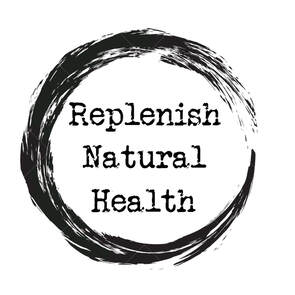
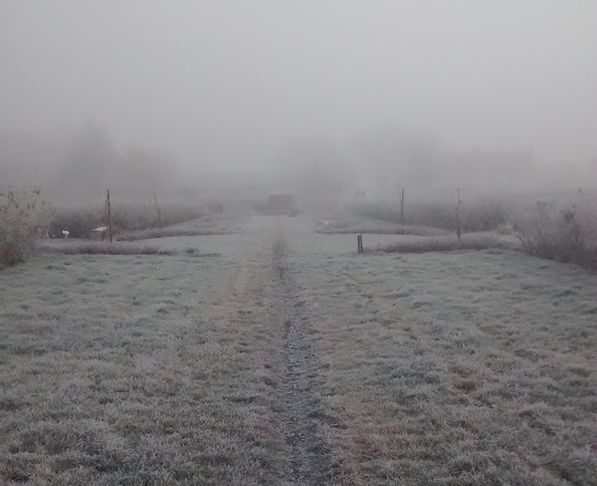
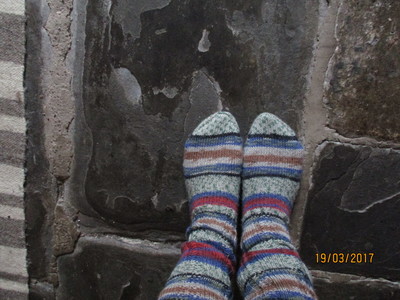
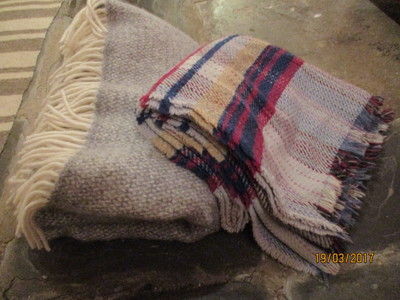
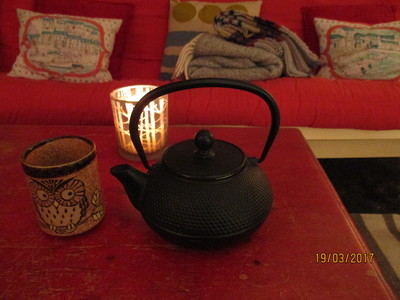

 RSS Feed
RSS Feed
